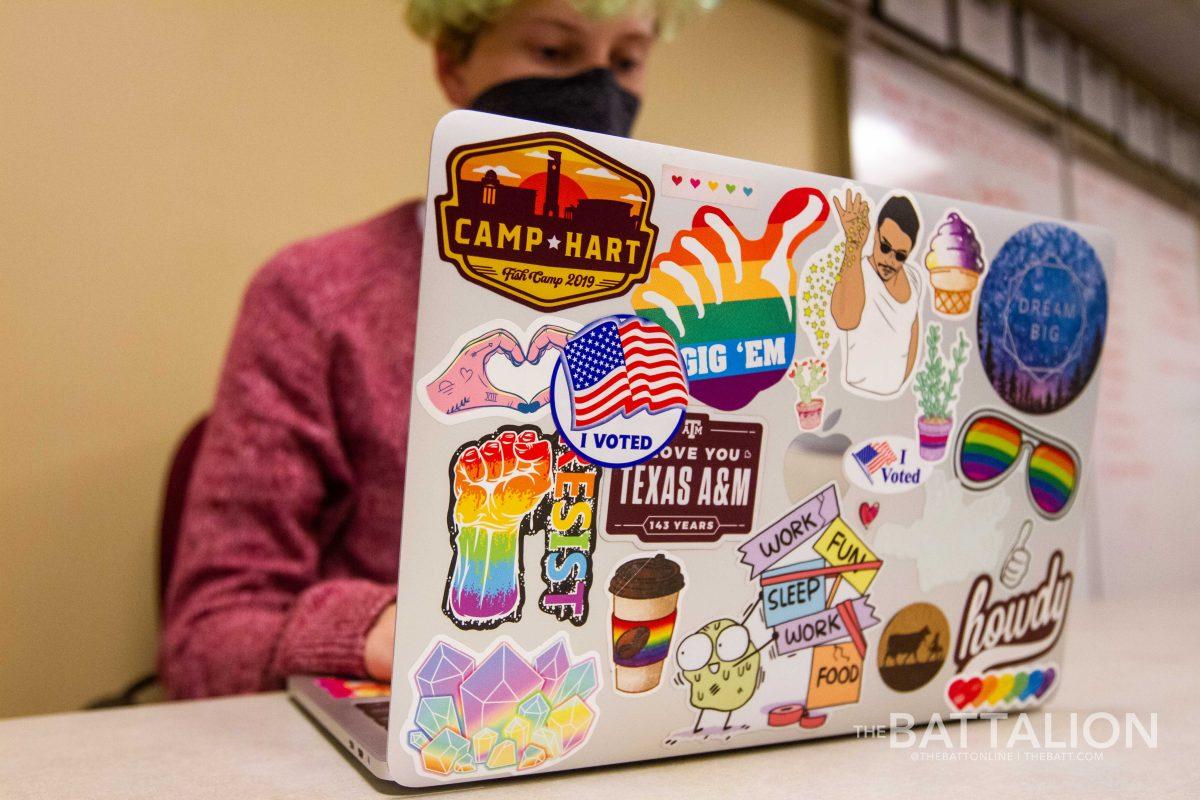As the 2020 election approaches, the Generation Z vote will have a significant influence, as this age group will make up 10 percent of all eligible voters this fall.
Gen Z voters range from 18-23 years old and are estimated to be about 23 million in number within the U.S. according to the World Economic Forum. Out of these 23 million, about 13-15 million are new voters.
Gen Z stands out due to its comparatively diverse population with 55 percent of voters identifying as white, 22 percent as Hispanic, 14 percent as Black, 5 percent as Asian and 5 percent as more than one race. Professor in the Department of Communication and the Public Policy Research Institute Kirby Goidel credits social media for the enthusiasm of the new generation of voters.
“Social media will connect people with networks of like-minded individuals,” Goidel said. “It can help mobilize, and it can be a platform for sharing information with friends and family. On a negative note, it will continue to spread misinformation.”
Goidel said Gen Z is more tolerant, educated and open to new ideas than older generations. She said she is optimistic about the potential of this generation, but acknowledges the hardships they will encounter.
“This generation will also face unique challenges because my generation is leaving it with less economic security, looming environmental crises from climate change and government debt,” Goidel said. “Like it or not, Gen Z will have to engage as citizens and create not just better lives for themselves but stronger, more resilient communities.”
Wildlife and fisheries sciences sophomore Beatriz Gil said she believes Gen Z is different from other generations because of the changes that have been made during their lifetimes.
“Being raised in the 2000s, we have seen a great shift in politics, human rights and racism to a point where there is a great intolerance for those who discriminate,” Gil said. “This has brought us to use our voices greatly, which is something that most generations didn’t see at such a young age.”
Goidel said politics is highly important to older voters because they tend to receive more benefits from the government, so it is inherent for young people to make their voices heard.
“If Gen Z votes at a higher rate, policy will better reflect their interests and concerns,” Goidel said. “For example, many college students want tuition decreased, but in order for this to happen, they need to show up to the polls.”
Political science professor Dwight Robyler said he attributes the increased interest in voting to the picture both parties have painted of this election.
“The supporters of both candidates make it seem like if the wrong side wins, the world ends,” Robyler said. “If one side is good, the other is evil. Pretty basic stuff, although these are images that are often used by both parties in elections. Of course, many Gen Zers don’t probably recognize that because this is their first or second presidential election.”
The democratic republic only works properly if everyone votes, Robyler said; the officials who represent the people cannot truly do so if the people do not speak up.
“Young adults often have a different perspective than older voters on the challenges and promises of our nation,” Robyler said. “They look on old problems with fresh eyes, sometimes with optimism and sometimes recognizing impending disasters for them and future generations.”
Robyler said he wants members of Gen Z to know the key to making decisions regarding voting is to share their insights and desires, but also carefully listen to the council of those in prior generations, even though that council will sometimes hold wisdom built on facts, errors or untruths.
“For Gen Z, they may face a harder time than the rest of us in being able to tell the difference, yet for the good of all of us, it is imperative that they do it better than we have,” Robyler said. “They have a stake in the election and this election is very much about the future.”
Gil said 2020 has been a motivation for Gen Z to make changes, and with the individuals of this generation coming of age, their effect is being noticed.
“This year has been a roller coaster with politics, fights for rights and a global pandemic,” Gil said. “We are enthusiastic to use our vote and finally make our voices heard.”
A look at Gen Z voting demographics
October 28, 2020
Photo by Photo by Kaylee Cogbill
The Generation Z voting demographic is the most racially and ethnically diverse group when compared to older generations.
0
Donate to The Battalion
$2790
$5000
Contributed
Our Goal
Your donation will support the student journalists of Texas A&M University - College Station. Your contribution will allow us to purchase equipment and cover our annual website hosting costs, in addition to paying freelance staffers for their work, travel costs for coverage and more!
More to Discover










